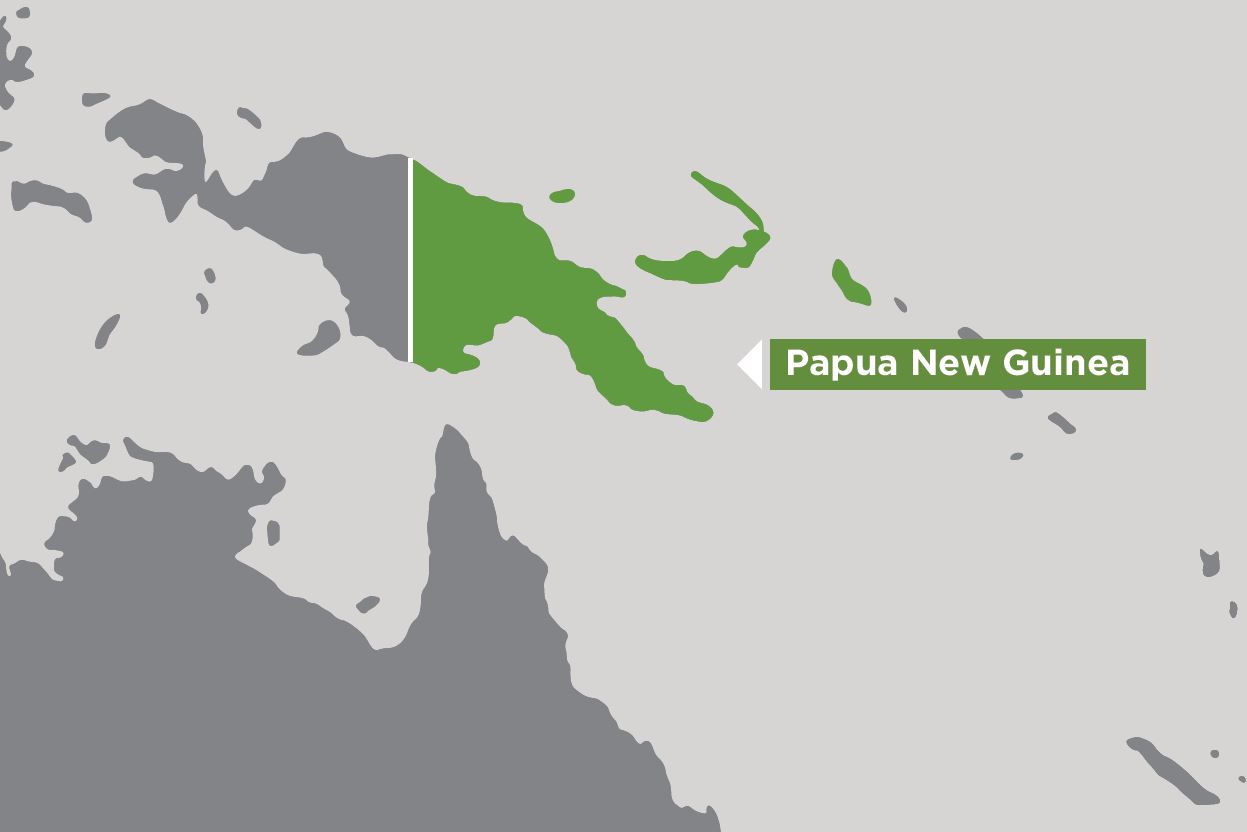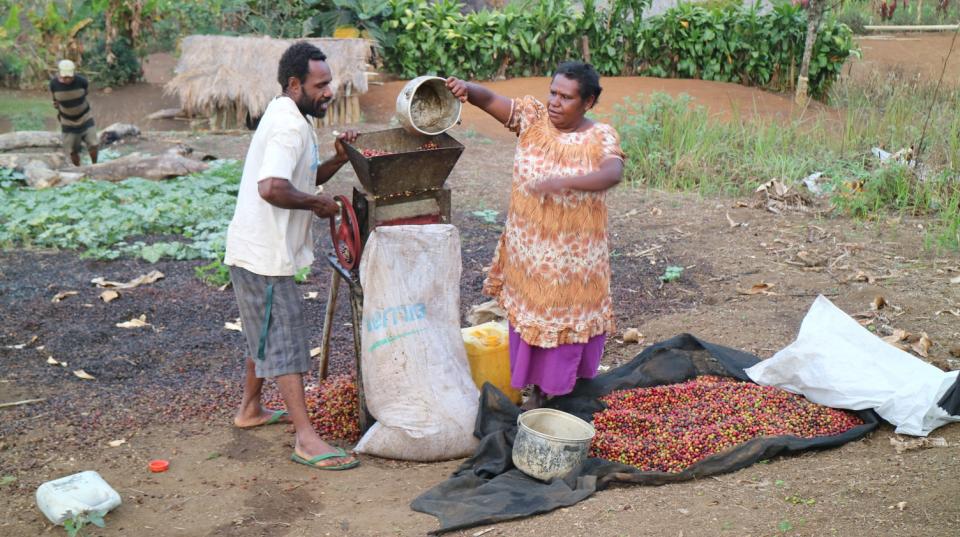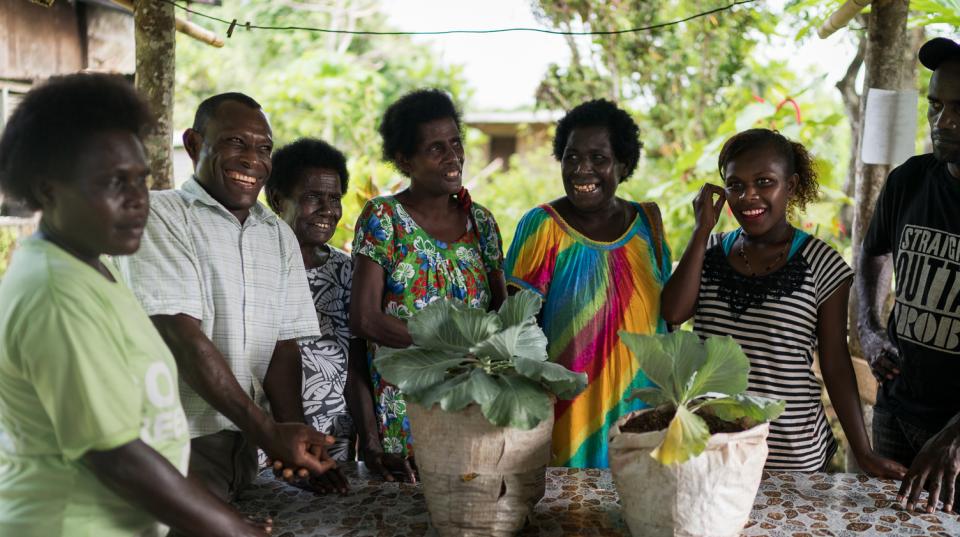Overview
This project aims to develop, field test, refine and facilitate the uptake and use of an extension training package; develop a model for demucilager use by farmer groups that delivers social and economic benefits; identify and develop culturally acceptable and nutrient efficient coffee-vegetable intercropping systems; and assess the social and economic benefits to smallholders of direct cherry sales to processors and quantify changes in the amount and distribution of household income between men and women.
This project is increasing returns to labour, particularly for women, through the adoption of new technologies and farming practices that improve coffee quality and total production. Coffee is the second largest agricultural export in Papua New Guinea (PNG). It is grown in 17 of the country’s 22 provinces, with over 85% produced by smallholders, and is the primary source of household income for many highland communities. However, national production has declined to less than one million bags per year. The recent arrival of the Coffee Berry Borer (CBB) highlights the urgency of improving farmers’ technical knowledge to address this devastating pest.
Expected project outcomes
- Smallholder farmers to earn higher incomes from better quality of coffee, higher production, reduced costs and strengthened livelihood resilience.
- All government and private sector extension delivery agents in the highlands able to access the training package developed by the project.
- Introducing and promoting demucilagers to significantly increase the returns to labour through greater labour efficiency and higher prices.
- Demucilagers to assist processors/exporters by raising quality and returns to both farmers and processors/exporters and to provide an incentive for stronger engagement between the two groups.
- Intercropping of coffee with food crops in areas facing population pressure to enhance food security and provide an additional income source for women.
Summary of outcomes to date
2021–22
- 16 training modules have been prepared, 9 of which are formatted and ready for trialling with farmer groups. CIC extension staff are also making further progress on the Melanesian Pidgin notes that supplement each of the modules. Printing of modules is anticipated to commence in late 2022.
- The mini wet mill (ecopulper) established at Bena, EHP, is now its third year of operation. The ecopulper trial has significantly improved labour efficiency as well as the quality of smallholder processing leading to higher grade parchment and price premiums for farmers. With the arrival of Coffee Berry Borer (CBB) in 2021, the ecopulper is still able to help farmers earn a price premium despite some damage from CBB (Plantation B grade). The importance of the ecopulper for labour efficiency and coffee quality is likely to increase as CBB becomes endemic in the highlands leading to lower returns to labour for smallholders using traditional processing techniques. Improved returns to labour may also stimulate higher levels of coffee plot management that may assist the control of CBB.
- Nutrient-rich ‘waste’ from the ecopulper is being recycled through community gardens managed by members of local savings groups (established under ASEM/2014/054). Three quarters of members are women. In 2022 almost 80% of households had planted their vegetable plots for three years in a row. With the recycling of nutrients from the ecopulper there is an opportunity for the group’s coffee to be certified by the main certification organisations, thus attracting a further price premium.
- Strong synergies have been created between the ecopulper trial component of this project and the Village Savings and Loans Associations (VSLA) at Bena established under ASEM/2014/054. These synergies are helping to enhance the community benefits associated with the ecopulper and the VSLA groups, by strengthening social capital within these groups, providing new livelihood opportunities and a broader base for community development, and enhancing the long-term sustainability of the two interventions.
- The intercropping trials at Asaro have proved popular among women farmers, who have a new source of income. Women are investing more labour in the coffee plot to tend to cabbages. They control the income from the cabbages and in this way, intercropping is creating more gender equitable distributions of income earned within a coffee plot. Intercropping is particularly important for land-short families.





